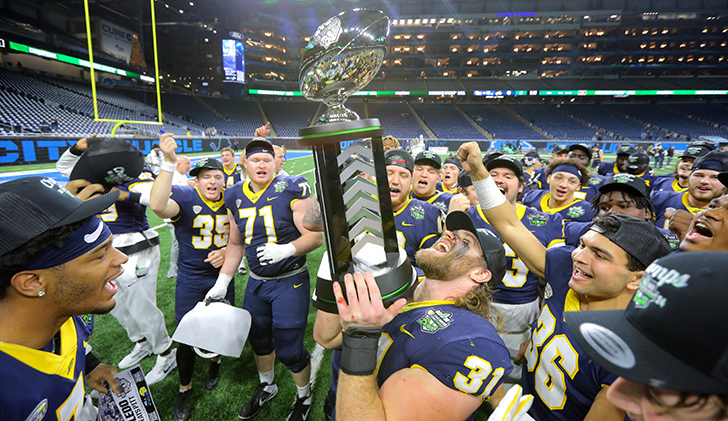World
‘The people’s pygmy princess!’ How Moo Deng captured the world’s hearts

It’s been a rough year and we all craved solace. Thankfully, the universe provided in the moist, ungovernable form of a baby pygmy hippo. To the uninformed, here is a brief primer on 2024’s hottest It-mammal.
On 10 July 2024, a female pygmy hippo was born at the Khao Kheow Open Zoo in Thailand, to mother Jona and father Tony. The zoo launched a public poll to choose a name for the infant. There were three meat-themed names to choose from: Moo Deng (bouncy pork), Moo Sap (minced pork) and Moo Daeng (red pork). Moo Deng won with 20,000 votes and soon captured the world’s imagination. Photographs of the infant – a slippery, chaotic and yes, bouncy beast shaped like a large potato, with a rolling eye, frequently open mouth and seemingly strong opinions – brought wonder to a jaded world.
Some basic pygmy hippo facts. They are rare, shy, native to west Africa and belong to the genus choeropsis (which, I learn, is ancient Greek for “looks like a pig”). At birth they weigh between 4.5kg and 6.2kg, barely more than a human baby, but adults can reach a chunky 270kg. They secrete hipposudoric acid (also known as “blood sweat”, though it’s neither), which probably acts as sunscreen and gives Moo Deng her characteristic soapy sheen. Although pygmy hippos can make noises (from low grunts to high-pitched squeaks), they are apparently “usually silent”. In captivity they can live up to 55 years, which I think we can all agree is nowhere near long enough.
Other pygmy hippos are available: they breed well in captivity and are regularly born in zoos around the world. Where were you, I am tempted to ask, when Latke arrived this spring? Latke, of Tanganyika Wildlife Park in Kansas, US, combines the aesthetic of a potato and the iron will of a toddler. A TikTok of him being cajoled, then finally carried, back to bed one night racked up over 700,000 views. Taronga Zoo in Sydney, Australia, has 11-month-old Lololi; Berlin Zoo has Toni; Athens has a rare male. Even Edinburgh Zoo now has its own rival to Moo Deng, called – naturally – Haggis.
So what makes Moo Deng so special? I don’t know – what makes the Mona Lisa better than other Renaissance portraits? She has star quality, that ineffable, glittering je ne sais quoi that marks out the truly charismatic. Digging deeper, I think we love Moo Deng because she is unapologetically her authentic self at all times in a way that humans envy. Her untameable spirit reminds me of that small child who marched into her father’s BBC interview while he was discussing South Korean politics. Videos of her resisting being washed or moved show her open-mouthed as if screaming in primal protest (and the mouth of a hippo – even a pygmy one – is large so it is an impressive sight). She sleeps much of the time (pygmy hippos are nocturnal), and when she does her ears often wiggle. She runs around chaotically yet charmingly, filled with the joy of being alive.
Best of all, she chomps. Pictures of Moo Deng toothlessly trying to bite the knee that feeds her (that of her zookeeper, Atthapon Nundee) have proved particularly captivating. She’s very bad at biting, but that won’t stop her trying – and she was probably doing it because she’s been teething.
Predictably, the Thai star has spawned an infinity of memes. Brands from McDonald’s to Puma jumped on her bandwagon with Moo Deng social media posts. Glamour magazine did an article on how to “get the pygmy hippo look” with makeup, and – like any It-girl – Moo Deng has her own official clothing line. Other tenuously Moo Deng-related stuff out there includes jellies and blown glass sculptures.
The pygmy hippo has long been part of the culture and folklore of west Africa. According to the BBC, one Ivory Coast legend says: “Anyone who sees the tail of a pygmy hippo and laughs will go crazy,” and it seems this has come to pass. Some of Moo Deng’s thousands of daily visitors have been disappointed to find her asleep (see: nocturnal) and the zoo has been forced to erect a sign asking visitors not to shout at her or throw things into her enclosure.
But her fame is also, conservationists hope, raising the profile of this red-list species that is struggling to survive in the wild. The pygmy hippo’s traditional habitats in Ivory Coast and Liberia, in particular, have been eroded by deforestation for oil palm, cocoa and rubber crops. There is an estimated wild population globally of 2,000-2,499.
Are we entering the era of the Moo Deng backlash? The week before the US election, she was presented with two fruit and vegetable cakes with the names of the presidential candidates carved in them; she chose to eat the Donald Trump cake. I’m not convinced this is indicative of the hippo’s political leanings. However, USA Today claimed that Democrats have since “turned” on her. I don’t believe for a minute anyone has done any such thing, but I suppose you could argue Moo Deng is the ideal internet animal for the second Trump era: she acts purely on her most basic impulses and lashes out when thwarted.
So what next for Moo Deng, the people’s potato princess? A spot in the Pirelli calendar, a line of shapewear, a podcast? She has recently featured on her first dance track – a 50-second collab with the Thai composer Mueanphet Ammara that I can’t in all conscience recommend you listen to. But I’ve also just checked the zoo’s livestream and she’s asleep in a pile of grass. Just as she should be. All hail Bouncy Pork.










